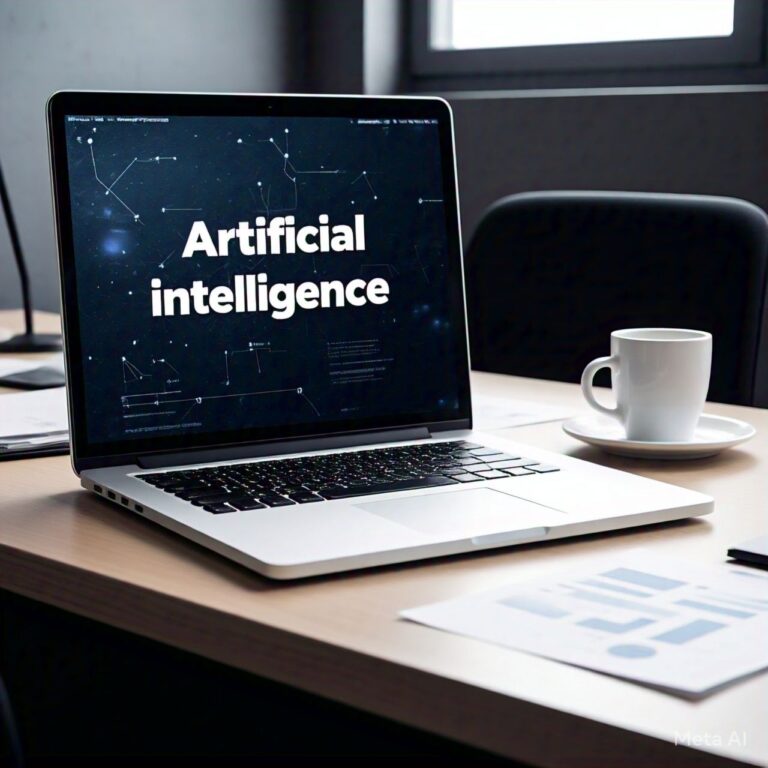
AI in 2025 is poised to transform industries. Advancements in everything from automation to machine learning are reshaping how businesses operate.
Emerging technologies are becoming more integrated, and understanding these shifts will help you stay ahead of the curve.
This blog will explore the state of AI in 2025, the industries it is revolutionizing, and the innovative advancements shaping the future.
Understanding the Role of AI in 2025
The year 2024 marked a pivotal moment for AI advancements, with tools like OpenAI’s GPT models and Microsoft Copilot demonstrating AI’s potential to enhance workflows and collaboration.
As we look ahead to 2025, AI will handle complex tasks with little to no human input. Machine learning, natural language processing, and computer vision will improve significantly.
These advancements will enable AI to think, learn, and act more like humans. As a result, AI will become more efficient and intuitive. It will adapt across various applications in different industries.
Consequently, AI in 2025 will be deeply embedded in everyday life. It will affect everything from healthcare to business operations.
With these advancements, AI in 2025 promises to be smarter and more precise. It will solve problems that were once beyond technology’s reach.
Image by Gerd Altmann from Pixabay
Key AI Trends to Watch in 2025
1. Autonomous Systems Revolutionizing Industries
As AI in 2025 continues to evolve, automation is redefining industries such as healthcare, logistics, and manufacturing.
- Healthcare Automation: AI-powered tools will predict patient conditions accurately by 2025, enabling the creation of personalized treatment plans.
- Manufacturing and Robotics: Advanced autonomous robots are improving efficiency by accelerating production lines and reducing operational errors.
- Self-driving Vehicles: Autonomous vehicles are set to dominate urban areas, delivering safer and more intelligent transportation systems that will redefine how we navigate our cities.
This trend is more than just technological advancement.
While automation streamlines processes, it also increases demand for expertise in AI development and system maintenance.
Furthermore, businesses must quickly adapt to these advancements to stay competitive in the evolving landscape of AI in 2025.
2. AI-Powered Personalization and Customer Engagement
In 2025, AI is set to revolutionize customer experiences through advanced personalization.
Businesses are leveraging AI in 2025 to understand customer behavior more deeply.
- Chatbots and Virtual Assistants: AI chatbots are providing tailored, instant responses, enhancing customer satisfaction significantly.
- Recommendation Systems: AI analyzes browsing patterns to recommend products customers are likely to buy.
- Marketing Personalization: AI algorithms predict consumer needs and deliver customized ads, boosting conversion rates.
Through predictive analytics, AI in 2025 will continue helping businesses stay competitive by forecasting customer preferences and adapting quickly to their needs.
3. The Rise of Generative AI and Creative Applications
AI’s creative potential has expanded into art, music, and content creation. By 2025, generative AI will play a major role in innovation.
- Art and Design: AI is now capable of generating impressive pieces of art. Artists and designers are collaborating with AI tools to enhance their creative work.
- Content Generation: AI writing tools, including automated news and blog generation, are becoming sophisticated. They produce high-quality content quickly, providing businesses with a competitive edge.
- Music Composition: AI has entered the music industry, generating melodies and harmonies. By 2025, AI-assisted composition will be more widely adopted by musicians and production teams.
Generative AI in 2025 will enable creators to push boundaries, enhancing both speed and quality in various industries.
4. AI-Driven Cyber Security Enhancements
Cybersecurity is a top priority in 2025, and AI is leading the charge against evolving threats.
- Threat Detection: AI algorithms identify and neutralize security breaches faster than traditional systems.
- Automated Responses: AI systems handle cybersecurity incidents in real-time, minimizing potential damage.
- Fraud Prevention: Businesses are using AI to detect fraudulent transactions and protect customer data proactively.
With increasing cyber risks, AI in 2025 is a critical defense tool for ensuring data security and business continuity.
5. Big Tech’s Ambitious AI Projects for 2025
Big tech companies are making bold moves in AI in 2025, driving significant innovations and investments.
- Stargate Project: Announced in January 2025, this $500 billion AI initiative involves OpenAI, SoftBank, Oracle, and MGX. It aims to build AI infrastructure across the U.S., including 10 data centers in Texas.
- Meta’s $65 Billion Investment: Meta is constructing a 2-gigawatt data center to enhance AI infrastructure and capabilities.
- Microsoft’s $80 Billion Plan: Microsoft is focusing on AI-enabled data centers to support advanced AI applications.
- Google’s AI Products: Google plans to release new AI-powered tools and features, showcasing its commitment to innovation.
- OpenAI’s Advanced Models: To counter emerging competitors, OpenAI is accelerating the development of next-generation AI systems.
These initiatives highlight how major tech players are shaping the future of AI in 2025.
Ethical AI and Regulation: The Growing Debate
As AI technology advances, so does the conversation around its ethical use. With AI’s ability to influence key decisions, ethical concerns are now central to the development process.
- Transparency in AI: Companies are focusing on making AI decisions more transparent. AI models are being designed to provide insights into how decisions are made.
- Bias and Fairness: The industry is confronting AI bias. Efforts are underway to ensure that AI systems operate fairly across diverse demographic groups.
- Global Regulations: Various governments, including the EU, have begun drafting AI regulations. The goal is to protect consumers while fostering innovation. For example, the EU’s AI Act, which was proposed in 2024, will likely influence global regulatory standards.
As more businesses adopt AI in 2025, the ethical framework around its use will become a priority.
Companies must develop solutions that align with social and moral expectations.
Image by Gerd Altmann from Pixabay
The Future of AI: What Lies Ahead in 2025?
As AI technology progresses, we can expect significant breakthroughs in fields like space exploration, environmental sustainability, and personalized healthcare.
Understanding how AI in 2025 will impact different industries will help businesses stay relevant.
Companies that adapt to these trends early will be better positioned for success in an AI-driven world.
As AI systems work alongside humans, we’ll see a future where machines handle complex, repetitive tasks while people focus on creative and strategic endeavors.
While challenges remain, the potential for positive change is immense, making the next decade an exciting time for technology and innovation.
What are your thoughts on AI in 2025? Comment below!




